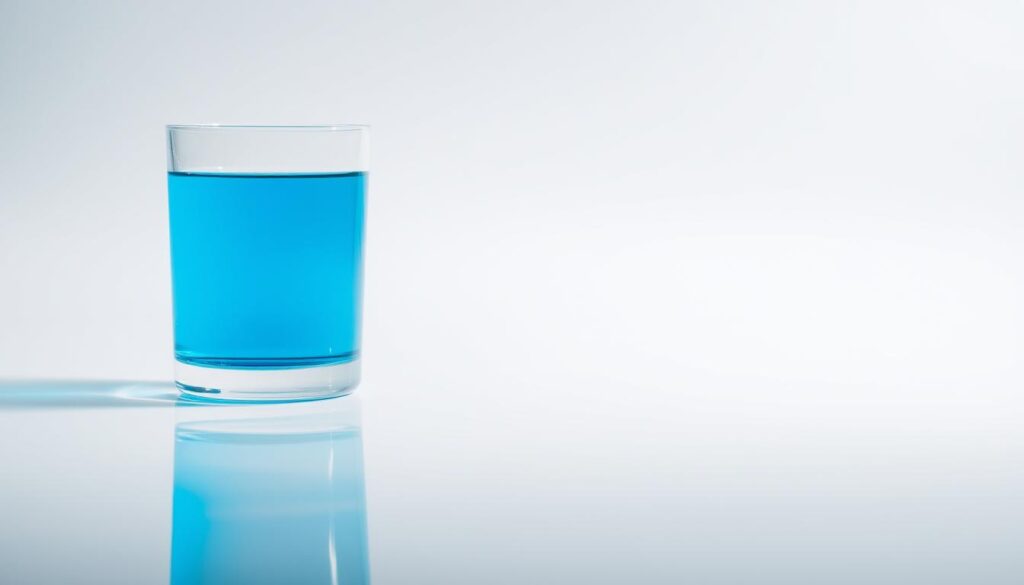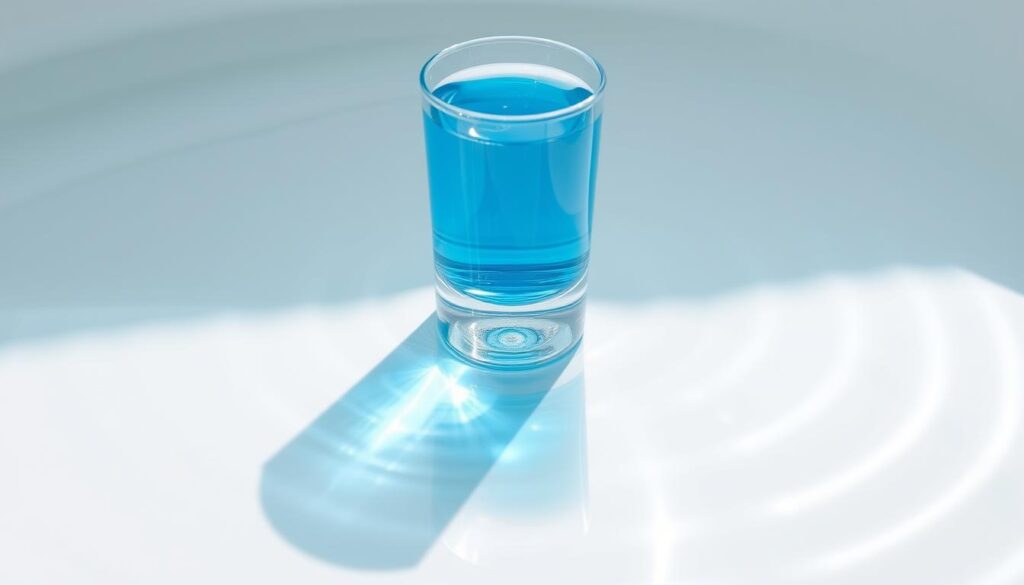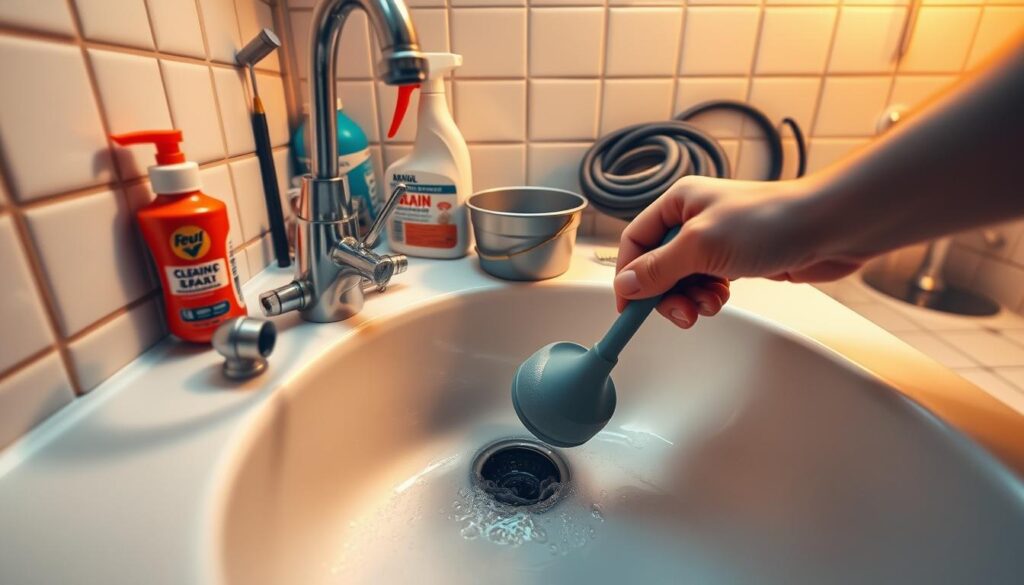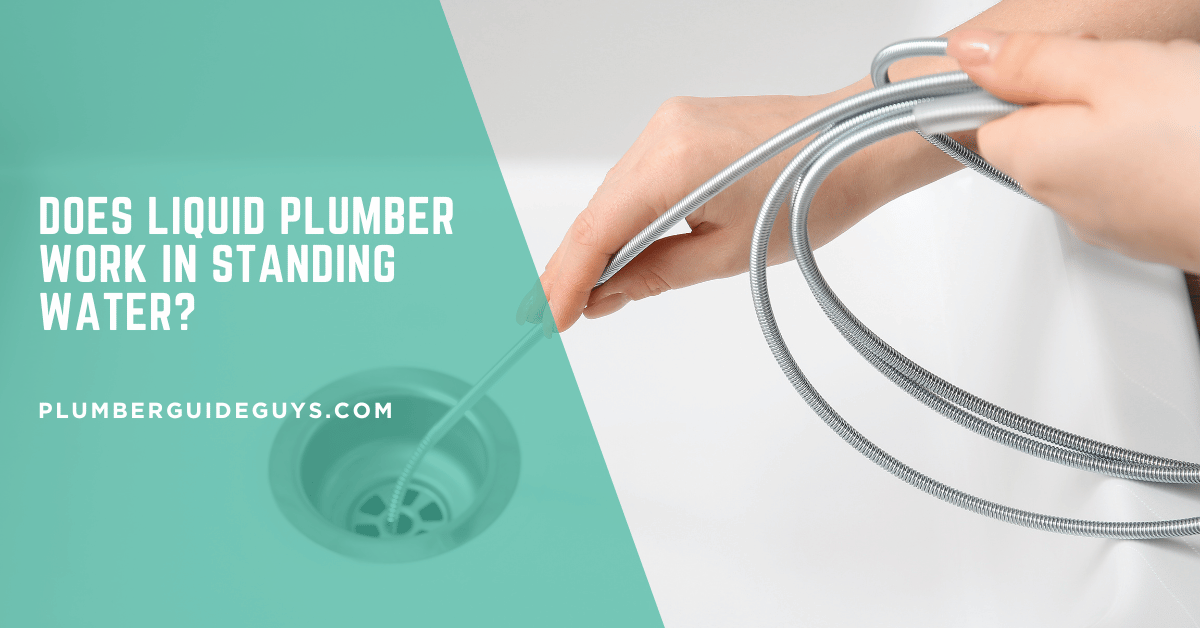Affiliate Disclosure
Plumber Guide Guys is a participant in the Amazon Services LLC Associates Program, an affiliate advertising program designed to provide a means for sites to earn advertising fees by advertising and linking to Amazon.
Does Liquid Plumber Work in Standing Water? Are you looking at a sink full of standing water, wondering if Liquid Plumber can help? When bathroom clogs happen, many wonder if their drain cleaner can fix the problem.

Liquid Plumber is made to tackle tough clogs that stop water from draining. It can handle hair, soap, and other organic buildup. This makes it a good choice for dealing with standing water.
Knowing how Liquid Plumber works can help you tackle your plumbing issues. This article will explore its mechanics, effectiveness, and best use in tough water situations.
Key Takeaways
- Liquid Plumber is engineered to work through standing water
- Chemical composition allows penetration of drain blockages
- Effectiveness depends on clog type and severity
- Proper application is key for the best results
- Always follow safety precautions when using drain cleaners
Table of Contents
Understanding How Liquid Plumber Functions in Standing Water
Dealing with a clogged sink? Knowing how Liquid Plumber works can help. It’s made to clear tough blockages, even when water is stuck.
Chemical Composition and Active Ingredients
The drain cleaner’s power comes from a special mix. It includes:
- Sodium hypochlorite (bleach compound)
- Sodium hydroxide (caustic soda)
- Surfactants
- Sodium silicate (corrosion inhibitor)
Solution Penetration Mechanism
Liquid Plumber’s formula lets it sink through standing water. It uses dense chemicals that go deep. These chemicals start a chemical reaction that breaks down and dissolves blockages.
| Chemical Component | Primary Function | Effectiveness in Standing Water |
|---|---|---|
| Sodium Hydroxide | Breaks down organic materials | High |
| Surfactants | Reduces surface tension | Moderate |
| Sodium Silicate | Prevents pipe corrosion | Protective |
Time Required for Effectiveness
The time Liquid Plumber takes to work depends on the clog’s severity. You can see results in 15-30 minutes. For really stubborn clogs, you might need to wait longer or use it again.
Safety Precautions When Using Liquid Plumber
When you use chemical drain cleaners, safety is key. Liquid Plumber has strong chemicals that need careful handling. This protects you and your home.
Before you start, make sure to follow these important safety tips:
- Wear protective gear like rubber gloves and safety glasses
- Work in a place with good air flow to avoid breathing in fumes
- Keep kids and pets away from where you’re working
- Never mix different chemical drain cleaners
Knowing how to act in case of chemical exposure is vital:
- Eye Contact: Flush with cool water for 15 minutes right away
- Skin Contact: Clean with soap and water
- Ingestion: Don’t make yourself vomit. Drink water and call poison control
Knowing the right safety steps lets you use chemical drain cleaners safely. This way, you can fix standing water without risking your health or plumbing.
Always read and follow the instructions on the product. This ensures safe and effective cleaning.
Types of Clogs Liquid Plumber Can Handle
Understanding the types of blockages in your drains is key. Liquid Plumber offers strong solutions for different kinds of clogs. It helps keep your sinks flowing smoothly.
Dealing with stubborn drain problems? It’s important to know what Liquid Plumber can handle. It’s made to tackle common plumbing issues in homes.
Hair and Organic Matter Clogs
Hair is a big problem in bathroom drains. Liquid Plumber’s formula breaks down:
- Tangled hair masses
- Shower drain hair accumulations
- Organic debris like skin cells and soap residue
Grease and Soap Buildup
Kitchen sinks face tough grease and soap scum. Liquid Plumber’s solutions dissolve:
- Greasy food residues
- Accumulated kitchen sink soap deposits
- Fatty substance buildups
Mineral Deposits
Hard water causes mineral blockages. Liquid Plumber tackles:
- Calcium buildup
- Lime scale formations
- Mineral-related pipe restrictions
Knowing about these clog types helps you use chemical cleaners wisely. This keeps your plumbing systems working well.
Does Liquid Plumber Work in Standing Water?

Dealing with a tough drain clog with standing water? Liquid drain cleaner is a key solution. Liquid Plumber is made to tackle these tough cases. It helps homeowners with slow or blocked drains.
How well Liquid Plumber works in standing water depends on a few things:
- Water depth and clog severity
- Chemical concentration of the product
- Type of blockage present
Does liquid Plumber work in standing water? The answer is yes, but there are some things to keep in mind. Its strong chemicals can go through standing water. They break down organic stuff and clear blockages. Its special mix lets it sink through water and hit the clog right on.
Experts say to follow these tips when using liquid drain cleaner in standing water:
- Pour the recommended amount slowly
- Let it sit for a while for the chemicals to work
- Don’t stir the water while you’re applying it
- Flush with hot water after you’ve treated it
Remember, while Liquid Plumber is good, really tough clogs or lots of standing water might need a pro. Always follow the instructions and stay safe when cleaning drains.
Proper Application Methods for Maximum Results
Clearing slow drains can be tough, but Liquid Plumber makes it easier. The right way to use it is key to fixing stubborn drain problems.
Dosage Guidelines for Effective Clog Removal
When using Liquid Plumber for bathroom clogs, remember these tips:
- For standard clogs, use about 1/2 of the 946mL bottle
- Measure carefully for the best results
- Adjust the amount based on how bad the clog is
Recommended Waiting Periods
Being patient is important when clearing slow drains. The waiting time lets the product work on tough blockages:
| Clog Severity | Recommended Wait Time |
|---|---|
| Light Clogs | 15-30 minutes |
| Stubborn Clogs | Up to 8 hours or overnight |
Flushing Techniques
After waiting, it’s time to flush right:
- Flush with hot water
- Run water for 1-2 minutes
- Check if the drain is clear and repeat if needed
Pro tip: Always wear gloves and work in a well-ventilated area with chemical cleaners. If the clog won’t go away, call a professional plumber.
Compatibility with Different Plumbing Systems
Using chemical drain cleaners for standing water requires knowing your home’s plumbing system. Liquid Plumber works well with many pipe materials and fixtures.
Your home’s plumbing might have different types of pipes. Knowing how to use Liquid Plumber can prevent damage. Most drain cleaners are safe for:
- PVC pipes
- Metal drainage systems
- Plastic plumbing fixtures
- Standard household sink and shower drains
Laboratory tests show these cleaners are mostly safe for modern plumbing. Specialized formulas protect your pipes while clearing clogs.
“Always check manufacturer guidelines for specific compatibility with your unique plumbing setup.” – Plumbing Maintenance Expert
Older homes or special plumbing systems need extra care. Homes with septic tanks or old pipes might need special steps. A professional plumber can give advice for your situation.
Here are some tips to follow:
- Read product labels carefully
- Check if the cleaner is right for your pipes
- Use the recommended amount
- Avoid using it too often
Common Mistakes to Avoid When Using Drain Cleaners
When dealing with tough clogs, using drain cleaner with water needs careful safety and technique. These solutions can be strong, but misuse can harm your plumbing and safety.
Experts say to avoid a few big mistakes that can ruin your drain cleaning:
Dangerous Product Mixing
Don’t mix different chemical drain cleaners. Mixing can make toxic gases and harmful reactions. Stay away from mixing:
- Ammonia-based cleaners
- Toilet bowl cleaners
- Non-branded clog removers
Overuse and Frequency Concerns
Using too much chemical drain cleaner can harm your pipes. Too many uses can weaken pipes and cause long-term problems. Follow the recommended use and try other methods for tough clogs.
Storage and Handling Precautions
“Safety begins with proper storage and handling of chemical drain solutions.” – Plumbing Safety Council
Storing sink unclogging solutions right is key. Keep drain cleaners:
- In original containers
- Tightly sealed
- Away from children and pets
- In cool, dry places
- Out of direct sunlight
Knowing these risks helps you safely handle drain maintenance. It keeps your plumbing and health safe.
Alternative Solutions for Stubborn Clogs
When chemical cleaners don’t work, you need other ways to clear clogs. Clearing slow drains needs a smart plan, not just liquid cleaners.

- Plunger Method: A classic tool for dislodging minor blockages in sinks and toilets
- Drain Snake: A flexible tool that can reach deep into pipes to break up tough clogs
- Natural Enzyme Cleaners: Environmentally friendly options that break down organic matter
Let’s look at how different methods compare:
| Method | Effectiveness | Cost | Pipe Safety |
|---|---|---|---|
| Plunger | Moderate | Low | High |
| Drain Snake | High | Medium | Medium |
| Baking Soda & Vinegar | Low to Moderate | Very Low | Very High |
For really tough clogs, you might need a pro. Trying many methods without success could harm your pipes.
Pro Tip: Always wear protective gloves and follow manufacturer instructions when attempting any drain-clearing technique.
These alternatives can help with slow drains, but they have limits. Some work better for certain clogs. Knowing your clog type helps pick the best method.
Environmental Impact and Pipe Health Considerations
Chemical drain cleaners can harm your home’s plumbing system over time. Knowing the risks helps you choose better sink unclogging solutions. These protect your pipes and the environment.
Using harsh chemical drain cleaners can cause hidden damages. These strong solutions have caustic ingredients. They slowly damage pipe materials, weakening your plumbing system.
Long-term Plumbing Consequences
Chemical drain cleaners can seriously harm your pipes:
- Metal pipe corrosion
- Plastic pipe material breakdown
- Reduced overall pipe durability
- Increased risk of leaks and water damage
Eco-friendly Alternatives
Try these green sink unclogging solutions to avoid damage:
- Enzymatic drain cleaners that use natural bacterial cultures
- Mechanical methods like plunging or drain snakes
- Baking soda and vinegar natural cleaning techniques
- Professional hydro-jetting services
“Protecting your pipes is an investment in your home’s long-term infrastructure and environmental responsibility.” – Professional Plumbing Association
Choosing gentler alternatives to chemical drain cleaners helps. You keep your drains clear while protecting your plumbing. This also reduces harm to the environment.
When to Call a Professional Plumber
Dealing with standing water can be tough. DIY fixes work for small clogs, but some problems need a pro. Knowing when to call a plumber is key to keeping your plumbing safe.
Clearing slow drains might seem easy, but some signs mean you need a plumber:
- Multiple drains clogging at once
- Persistent gurgling sounds from pipes
- Sewage backup or strange smells
- Water showing up where it shouldn’t
- Slow drainage in many places
Professional plumbers use special tools to find deep problems. Drain cameras and advanced detection equipment help them find issues that chemical cleaners can’t fix.
| Warning Sign | Potential Serious Issue |
|---|---|
| Recurring Clogs | Tree Root Infiltration |
| Sewage Smell | Damaged Sewer Line |
| Water Backing Up | Major Pipeline Blockage |
When picking a plumber, choose licensed ones with good reviews and clear prices. Trying to fix big problems yourself can cause more harm.
Conclusion
Knowing how liquid drain cleaners work in standing water helps you tackle clogs wisely. Liquid Plumber is a good fix for many household blockages. But, it’s not a solution for every plumbing problem.
Before using Liquid Plumber in standing water, check your clog type and plumbing situation. It works well for organic matter, hair, and light soap buildup. But, it might not handle tougher blockages that need a mechanical fix.
Using chemical drain cleaners safely is key. Always follow the instructions, wear protective gear, and think about the environment. If clogs keep coming back or are severe, calling a professional plumber is wise to protect your plumbing.
Preventing clogs is better than fixing them. Regular cleaning, proper waste disposal, and knowing your plumbing can stop big problems. This way, you’ll use fewer harsh chemicals.

